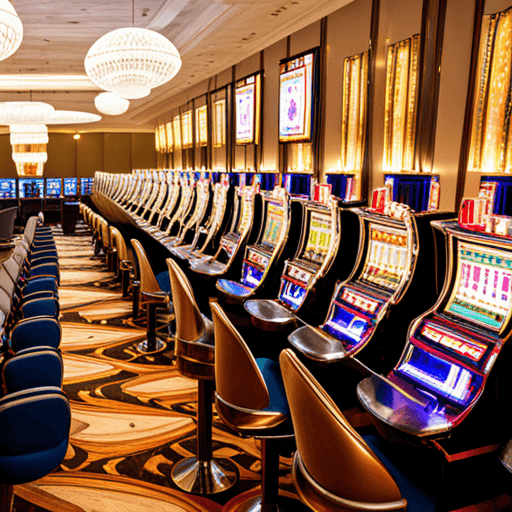
In recent years, the sphere of manga has exploded in popularity, enchanting audiences across the globe. This colorful medium, hailing from Japan, merges intricate artwork with engaging storytelling, permitting readers to escape into the fantastical realms and explore the depths of human emotion. As manga has established its way into various cultures, it has given rise a passionate community of fans who express their love for these illustrated narratives in both innovative and deeply personal.
At the heart of this flourishing scene is fan culture, a dynamic ecosystem thriving on collaboration, creativity, and connection. Fandoms dedicated to manga frequently go beyond mere appreciation of the art; they nurture friendships, ignite artistic endeavors, and create safe spaces for those who feel a sense of belonging. Fans engage through conversations, fan art, cosplay, and even conventions, all contributing to creating a vibrant tapestry of shared experiences that applauds the rich world of manga. Through this lens, we can explore the unique relationship between manga and its dedicated admirers, exposing how this cultural phenomenon has transformed into far greater than just a medium of entertainment.
A Journey Through of Manga Enthusiasm
Manga fandom has undergone a notable change since its beginnings in Japan. In the beginning, manga was mostly read by a limited audience, with magazines and serialized stories appealing to specific demographics. Yet, with the emergence of television adaptations and the World Wide Web, manga stepped into a new era, connecting with a universal audience and varied fan bases. Fans began to engage with their favorite series past mere reading; they created fan art, wrote fan fiction, and participated in virtual conversations that contributed to the culture surrounding manga.
The introduction of digital networking and online platforms additional boosted the development of manga fandom. Websites dedicated to translations made it possible non-Japanese fans to read and share their preferred manga titles. Platforms like X, Tumblr.com, and Reddit.com became gathering places for fans to meet, discuss ideas, and share enthusiastic content. These interactions cultivated a feeling of community, where fans bonded over mutual interests and created ties that crossed spatial boundaries.
In recent years, the growth of conventions and events dedicated to anime and manga has solidified the fandom’s role in popular culture. Cosplay has turned into a major aspect of expressing one’s passion for individual personages and stories, demonstrating creativity and dedication within the community. The progress of manga fandom is not just about consumption but also about involvement, working together, and the celebration of art and storytelling that continues to energize and unite fans around the world.
Community Involvement and Gatherings
Manga fandoms thrive on engagement and interaction among fans, and various activities play a crucial role in nurturing these relationships. Conventions dedicated to comic art, anime culture, and general pop culture attract thousands of attendees who share their enthusiasm for manga. These activities often feature discussions with artists, interactive sessions, and vendor stalls, creating an interactive experience for fans. Fans dress up as their beloved characters, showcasing their devotion for specific titles and allowing for social interactions centered around shared interests.
Digital spaces have also transformed the way comic fans connect. Online networks, forums, and dedicated websites provide fans with environments to chat about their top series, share artwork, and engage in fanfiction writing. Online gatherings, interactive conversations, and online gatherings have broadened the outreach, enabling fans from different backgrounds and locations to come together. The engagement fosters a feeling of community, as fans find like-minded individuals who resonate with the same stories, figures, and motifs that affect their daily experiences.
In addition to online interactions, community meetups and reading clubs have become common avenues for fans to engage with manga. These meetings offer a relaxed environment for sharing opinions and suggestions about new releases. Local bookshops and libraries often host gatherings that feature forums about popular series or upcoming works, drawing in fans eager to grow their reading lists. By promoting fan participation through these activities, dedicated fans nurture an ecosystem that not only appreciates the art form but also reinforces the relationships within the group.
spintax
### The Effects of Social Media on Fan Culture
Social networks has transformed how manga enthusiasts connect and engage with each other. Sites like Twitter, IG, and TikTok allow fans to share their opinions, fan art, and interpretations of their favorite series in real time. This instant communication fosters a sense of community, enabling fans to celebrate their common passions and bond over their favorite characters and narratives. The ease of access of these sites democratizes fan culture, enabling anyone with a passion for manga to join the dialogue.
Additionally, social media acts as a powerful tool for manga creators and publishers to easily reach their audience. Artists can post their work and receive immediate feedback, which promotes engagement and cooperation with their fans. This direct line of communication has led to an rise in fan-driven content, including fan translations and adapted works, which can enhance the manga experience. The capability to interact with content creators has also made fandoms more active, with fans feeling more connected than ever to the sources of their enjoyment.
On the other hand, the rise of social media can also lead to issues within fandoms. The quick dissemination of information and views can sometimes result in negativity, where discourse turns negative or exclusionary. Arguments over character interpretations or story developments can escalate, leading to divisions among fans. Despite these challenges, the overall impact of social media on manga fan culture is significant, uniting diverse groups and enhancing the way fans experience and interact their favorite series.
888b